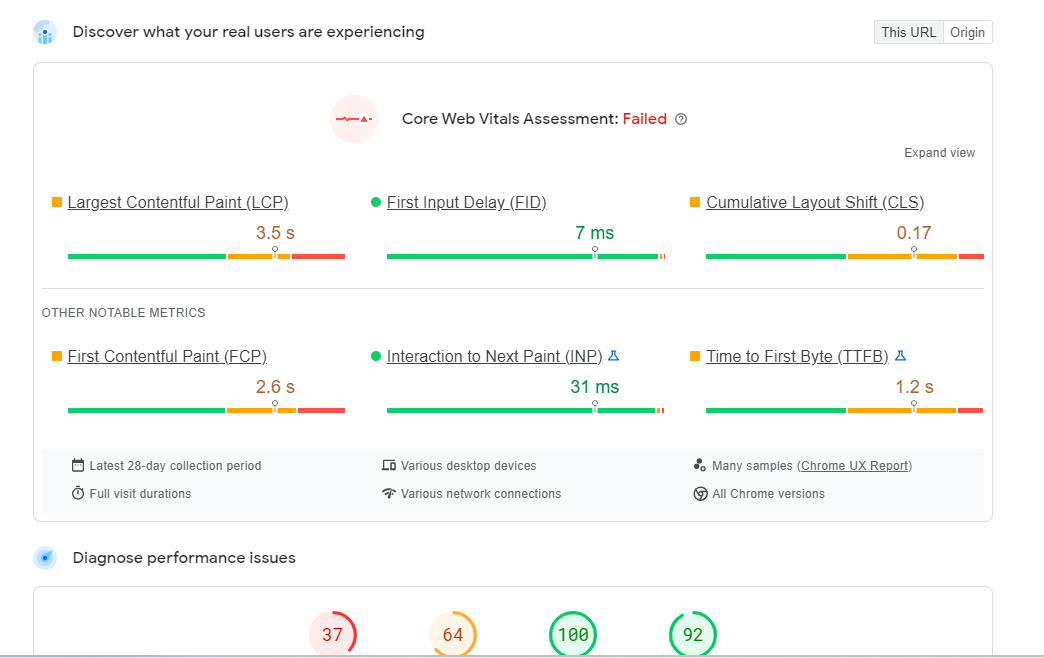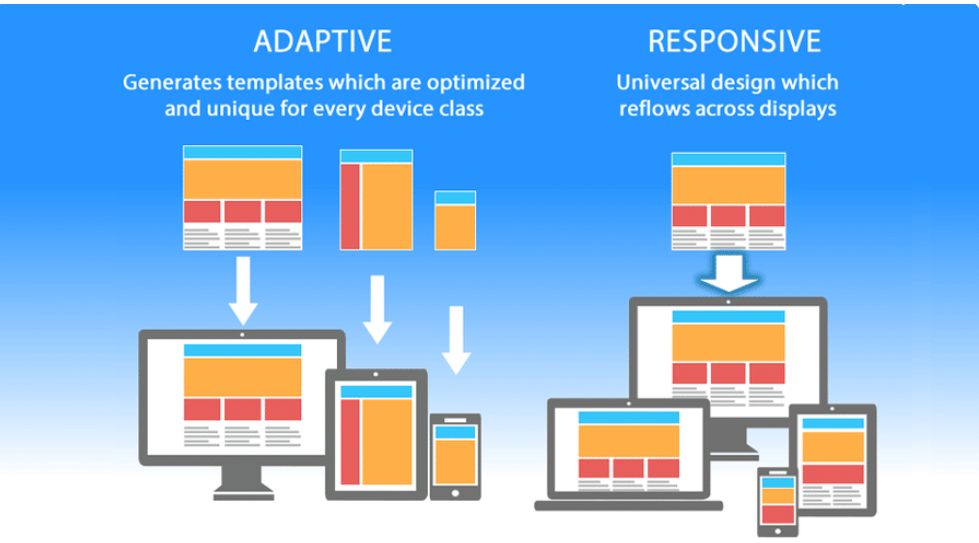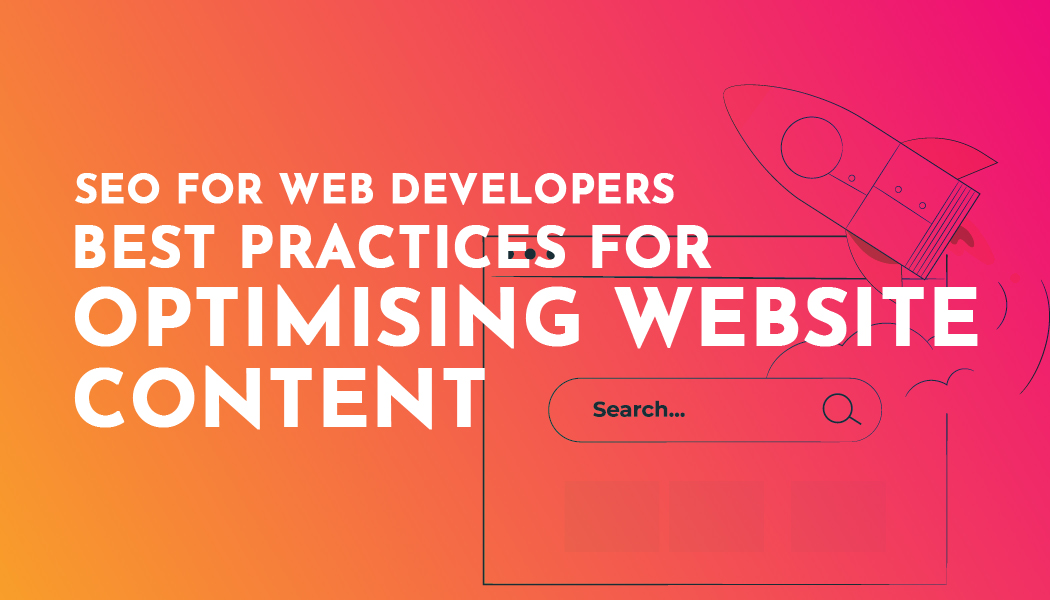SEO for Web Developers: Best Practices for Optimising Website Content
Developers that make it to the top of their sector understand that the online industry is rapidly advancing, with new languages and frameworks appearing almost daily. In fact, a Stack Overflow survey found that over 50% of web developers learn a new programming language or framework at least once a year to stay up with these shifts.
Thus, creating a fully functional website from scratch might be a difficult task. Yet what you write in the code can also affect how well a website ranks in search results. In reality, clean, efficient code is the foundation of a well-optimised website.
And that's just the tip of the iceberg—there are dozens of other development considerations that go into SEO.
Before we delve into the topic deeply, let's first examine what exactly search engine optimization is.
The Basics of SEO
The process by which a website's visibility in search engines is improved is known as search engine optimization (SEO). High-quality content creation, keyword optimization, and link-building are all typical components of SEO.
That is to say:
"Search engine optimization (SEO) aims to increase a website's visibility in the unpaid (organic) results of a search."
There are typically three subsets of SEO:
- Technical: How a website's URL is crawled and indexed by search engines
- On-page: How well are the contents optimised for target keywords, and how easy is it for users to navigate the site
- Off-page: Increasing the authority of your website by linking to other sites
Although developers play a crucial part in technical SEO, they shouldn't stop there when it comes to search engine optimization. Developers can aid in both on-page and off-page SEO by focusing on the user experience and ensuring a site is technically sound and easy to crawl.
In order to increase strong SEO performance, developers should focus on creating intuitive, user-friendly, and engaging websites that encourage low bounce rates, long time on site, and positive user feedback.
Ultimately, developers may help SEO experts succeed by catering to the requirements of both consumers and search engines simultaneously. And on their side, SEO experts will take care of the link building outreach and ensure the content on the website is relevant to the search inqueries.
Why SEO Matters So Much For The Websites?
- Increased visibility and traffic: SEO drive more visitors to a site by improving its position in search engine results pages (SERPs). Websites that rank higher in SERPs are more likely to receive hits and visitors.
- Credibility and trust: When a website ranks highly in search engine results, it might inspire confidence and trust in the minds of potential customers. Thus, you may see an increase in sales, subscriptions, and general interest.
- Cost-effective: Compared to other forms of online advertising, SEO can be a cost-effective way to drive traffic and conversions to a website. When a website is optimised, organic traffic and leads can continue to be generated without running ads all the time.
- Competitive advantage: Many businesses have an online presence in today's digital landscape. An SEO strategy can help a website rank higher in search results, appear more credible and trustworthy, and offer a better user experience.
How Can Web Developers Contribute To SEO?
Search engine optimization and website design are both equally crucial.
SEO can be influenced in many ways during the construction of a website. A successful website requires SEO, so web developers should remember this when building and maintaining their sites.
Here are some specific SEO best practices for web developers to follow:
- Website structure and coding: Web developers can structure a website to make it easy for search engine crawlers to index and understand the content. This includes creating clean, well-organised HTML and CSS code, using header tags to mark up content, and ensuring the website is mobile-friendly and loads quickly.
- URL structure: Search engines like user-friendly URLs that contain relevant keywords and are easy to understand by users as well as search engines.
Ultimately, the key is all about creating a synergy between web design and search engine optimization.
6 Best Practices for Optimising Website Content
Understanding how search engine optimization and web development interact is the first step. Let's look deeper at some of the well-received SEO best practices that everyone should follow.
1. Speed is of the utmost importance

Remember that search engines like Google and Bing make money by providing users with useful search results and a satisfying overall experience.
According to research, humans have a shorter attention span than goldfish.
This means that users will quickly abandon a website that takes too long to load. The more time it takes for the page to load, the more likely it is that your visitors will leave.
If you want faster web access, try the following:
- Doing periodic speed performance checks.
- Improving the image quality.
- Maintaining minimal JavaScript and CSS file sizes.
- Less reliance on third-party scripts.
- Trying to stay away from redirects wherever possible.
2. Don't forget to prioritise security

Customers and search engines place a premium on a safe and secure website.
Whenever people visit or purchase from a website, they need to trust them. Therefore, if your website is properly secure, it will help rank its search engine results page.
. If you want to strengthen and protect your website's security, you can do these things:
- Always use the most recent version of your web browser software. Your website's defences weaken with each passing version.
- Secure your website by installing an SSL and a web application firewall (WAF).
- Stop comment spam and the propagation of malware by moderating user submissions.
- A regular scan should be conducted for malware that may negatively affect the SEO performance.
3. Make sure that a sitemap is added
While advanced, search engines still can't fully understand what it's like to visit a website from a human perspective. They need you to provide indicators of the relationships between pages, and a sitemap is one way to do this.
Bots will follow every link on your site to see where it leads when they are indexing it. Including a sitemap is a good first step in this direction.
4, Ensure that JavaScript is optimised for search engines
Search engines like Google have improved significantly in their ability to crawl JavaScript. If you want to be on the safe side, try to make yours as simple as possible.
Anchor texts in web content, for instance, could be bound to specific Sites using JavaScript. This approach is similar to the signals created by conventional HTML, and it guarantees that all pages are given due credit for their relevance and authority.
5. Design a responsive website
Over half of all internet traffic in 2021 came from mobile devices like smartphones. The figures are higher than in recent years, and they're projected to keep going up.

Those who shop online no longer merely do so in their spare time. They look for answers instantly, even if they're in the middle of a journey.
That's why a completely responsive, mobile-friendly website is the need of the hour. Again, this is something that has a major impact on the user experience and, as a result, on your site's SEO.
6. Stay on top of crawl errors
Google is aware that even the most meticulously maintained websites get crawl issues from time to time. Yet, search engine optimization (SEO) might be negatively impacted if your site has specific types of problems (or too many faults overall).
Crawl faults, such as slow load times, insecure code, and other major web development vs SEO difficulties, signal to Google that your site does not provide a good experience for its visitors.
Errors increase the likelihood that a visitor may be redirected to a frustrating error page.
As with duplicate content, there are a few tried-and-true approaches site developers can take to fix crawl issues. You may immediately fix any broken links or problematic pages by using Google Search Console.
Finding A Delicate Balance Between SEO and Website Development
Integrating web development and search engine optimization is the key to a successful website. In order to create a website that excels in search engine optimization (SEO) and user experience (UX), teams should be encouraged to collaborate from the start.
Always keep in mind that the best approach to rise in search engine rankings is to help your customers genuinely.
Optimising the above factors, creating high-quality content, and offering excellent user experiences will help you rank higher in search engines.




